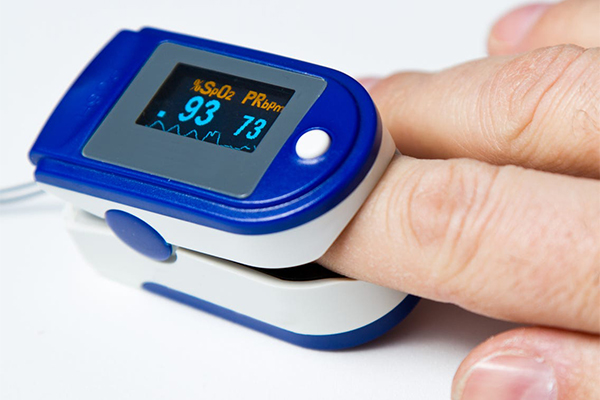Quality first, and provide customers with satisfying products and service
Quality first, and provide customers with satisfying products and service
Views: 0 Author: Site Editor Publish Time: 2021-04-17 Origin: Site









The pulse oximeter is a small instrument that is clamped on the finger to monitor the oxygen level in the blood. This kind of equipment, which was originally available in hospitals, suddenly began to attract everyone's attention because of the new crown pneumonia epidemic. What is this medical device for? Do you need to prepare one at home? Let's talk about it after reading this article.
This passage is going to talk about the following questions of finger pulse oximeter:
(1) Overview of finger pulse oximeter
(2) Do I need to buy a finger pulse oximeter?
(3) How to use pulse oximeter correctly?
Finger pulse oximetry is a noninvasive and painless test that measures your oxygen saturation or blood oxygen level in your blood. It can quickly detect how effectively oxygen is delivered to the limbs (including legs and arms) furthest from the heart, even with small changes.
A pulse oximeter is a small, clip-like device that can be fixed on body parts, such as toes or earlobes. It is usually used on the fingers, and is usually used in intensive care units such as emergency rooms or hospitals. Some doctors, such as pulmonologists, may use it in the office.
The purpose of pulse oximetry is to check how well your heart is transporting oxygen through your body.
It can be used to monitor the health of individuals suffering from any condition that may affect blood oxygen levels, especially during their hospital stay. These conditions include:
Chronic Obstructive Pulmonary Disease (COPD)
asthma
pneumonia
Lung cancer
anemia
Heart attack or heart failure
Congenital heart defect
In fact, if you don’t have any breathing problems and have never used it before, then you don’t need to buy a pulse oximeter. It is usually only used if recommended by a doctor.
Professor Xu, a clinical assistant professor at the University of Hong Kong and honorary consultant of respiratory and intensive care medicine at the Royal Free Hospital in London, said that pulse oximeters are still useful as early home self-monitoring equipment. Those who are weak, prone to respiratory failure, suffer from chronic respiratory diseases or need oxygen therapy at home can prepare one. Some people want to buy one for a self-test to find out their "normal" oxygen level, just in case it is also possible.
You need to put it on your finger and hold it steadily for 30 seconds. If you move around, place it improperly or run out of time, the reading may be inaccurate.
Don't wear nail polish or fake nails-they will block the light from the pulse from entering the bloodstream and affect the reading.
Pre-existing diseases-conditions such as anemia and Raynaud’s syndrome (abnormal cold fingers) may affect the accuracy of the reading.
The internal technology of the oximeter, the quality of LED diodes, the quality of photodetectors, and the quality of electronic products may also affect the accuracy of readings.
After the test, your care provider will get a reading immediately. This will help them determine if other tests or treatments are needed. For example, if you are evaluating the success of supplemental oxygen therapy, a low reading may indicate that more oxygen is needed.
Your healthcare provider will be able to tell you what the next step is. If you use a pulse oximeter at home, they will tell you how often to take a reading, and what to do when the reading exceeds or falls below a certain level.
Use a finger pulse oximeter for the test, which is a quick, non-invasive and completely painless test. Except that the adhesive used in certain types of probes may cause skin irritation, it poses no risk. If you are interested in our medical apparatus, you can contact us. We also provide Ice Bag Pack, Personal Care, contact us now
Address : Rm 1212, Block E Wan Da Plaza, No. 129 Fuyuan Street, Jianye District, Nanjing, Jiangsu, China
Email: Jason@nj-superfit.com
Tell: 0086(25) 84581516
Mobile: +86-13701467765
OMZR株式会社 代表取締役 張 雪(チョウ セツ)
福岡県福岡市中央区清川2丁目2-18-205号室
電話070-8909-6814(日本) 0086-186-5186-1218(中国) E-mail:ZHANGXUE5460@163.COM
日本全国の顧客様に、購買・販売および輸出入代理業務を承ります。